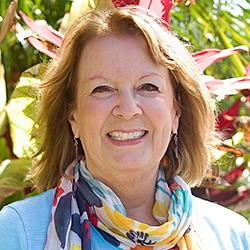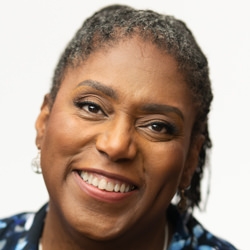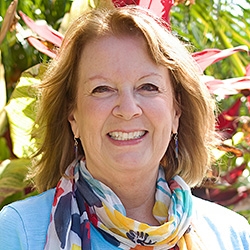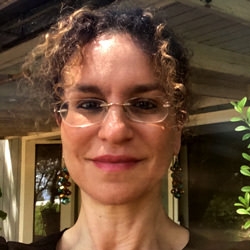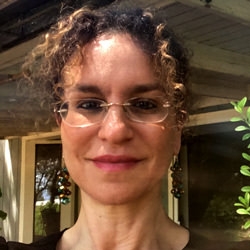
Search Results: children
-
Ingrid shares about the three primary keys of parenting & NVC, two child rearing models, developmental needs for children and how to foster secure attachment.
-
Children often ask adults “Can I…?” This question is so common that we carry it with us into adulthood, often addressing each other in the same way -- and more so with those we see as authority figures. However, let's unpack how this phrasing can reaffirm power differences. And see how, instead, we can transform paradigms of power in a way that invites dialogue, and co-creates an outcome that we can mutually benefit from.
-
Trainer Tip: The ways that we interact with our children shape the way they will interact in their world. How do your actions model compassion, tolerance, and love for your children?
-
Using her own and participants' examples, Inbal illuminates parents on where they might be struggling with connecting to their children's needs, especially in situations where the children are responding to the parent's request.
-
Ask the Trainer: "I just started teaching in a public school and I'm not enjoying the violence that teachers express towards children and their colleagues. However, when I talk about NVC, most people listen but I feel they're either not understanding it or ..."
-
Inbal offers parents and anyone with children in their life a lucid discussion of the important role self-empathy plays in creating healthy, supportive relationships.
-
Inbal offers parents and anyone with children in their life a lucid discussion of the important role self-empathy plays in creating healthy, supportive relationships.
-
Roxy Manning discusses the connection between the challenges parents face with their children and the qualities they want them to develop. She highlights the importance of aligning actions with desired outcomes, using the example that if parents value independence, they should encourage choice rather than demanding compliance. She encourages parents to consider the long-term impact of their parenting choices on shaping their children's future behavior.
-
What's really going on underneath the surface when we bring or encounter blame, judgements, pain -- and thereby the inability to empathize, be present, attuned, or responsive? Why does this happen even if one or more people in a relationship dynamic is working hard at bringing in an NVC response? This article addresses these and more questions from the perspective of how our brains are affected in our relationships.
-
In this video download, expert parent trainer and author of Parenting From Your Heart, Inbal Kashtan responds to the age-old question: "Why do children do things to annoy parents?"
-
Inbal speaks to a group about our habit of demanding something of our children but making it sound like a request, the components of a true request and the importance of being honest when making a demand.
-
Without self-acceptance any attempt at growth and transformation, even while parenting, can easily become a path to self-judgments and another yardstick against which to measure ourselves as falling short. Instead, we can practice 1 minute a day or more, or while doing other tasks, to develop the self-compassion and self-acceptance needed to grow both new habits and our capacity to meet our children with calm and compassion.
-
Listen to this captivating story by Leo Sofer. A strong blacksmith comes to the aid of a little girl when she needs protecting. But can he protect her from the harsh words she speaks to herself inside her head?
-
Inbal answers a parent's question about praise and offers a perspective on how praise translates into the NVC framework.
-
Trainer Tip: When we love a child there's a contribution we can provide in helping them go their own way successfully, in big ways and small.
-
Learn tools to help you reconnect and repair your relationship with your adult children. Whether the issues are estrangement, lack of trust, conflict, dependence, miscommunication or any other challenge that impacts you with your grown sons and daughters, your heart will find comfort and ease through this course.
-
Historically, work, education, resources, land, animals, and relationships were intertwined, shattered by capitalism and industrialization. We transitioned from communal self-sufficiency to individualism, industry, and smaller families. To avert extinction and thrive, we need to reconstruct social systems, emphasizing the commons, uniting communities with the land and resources in interdependent, regenerative harmony.
-
Join Aya Caspi, a Certified NVC Trainer, as she delves into the difficult topic of parenting, childhood trauma, and social status. She discusses the generational impact of being labeled by society as "less than" or subservient. The wounds of childhood trauma can be healed so they no longer are a means of control by a dominant culture.
-
Aya Caspi, a Certified NVC Trainer discusses how the "story" we tell ourselves about human nature impacts our childhood and the roles we are taught to play in society.
-
This article aims to discuss shifting fully from power-over to sharing power in families; turning power struggles into dilemmas. It focuses on the topic of living in a partnership paradigm as a family...



